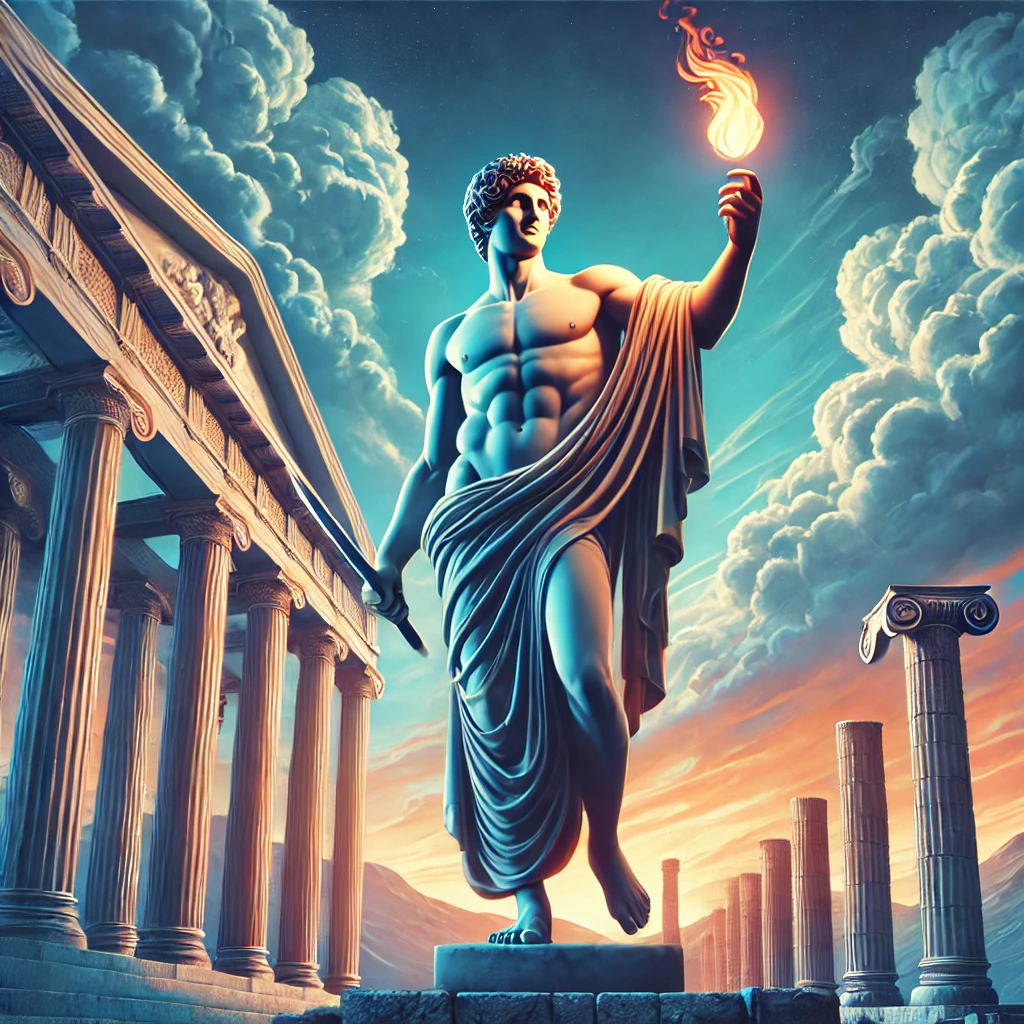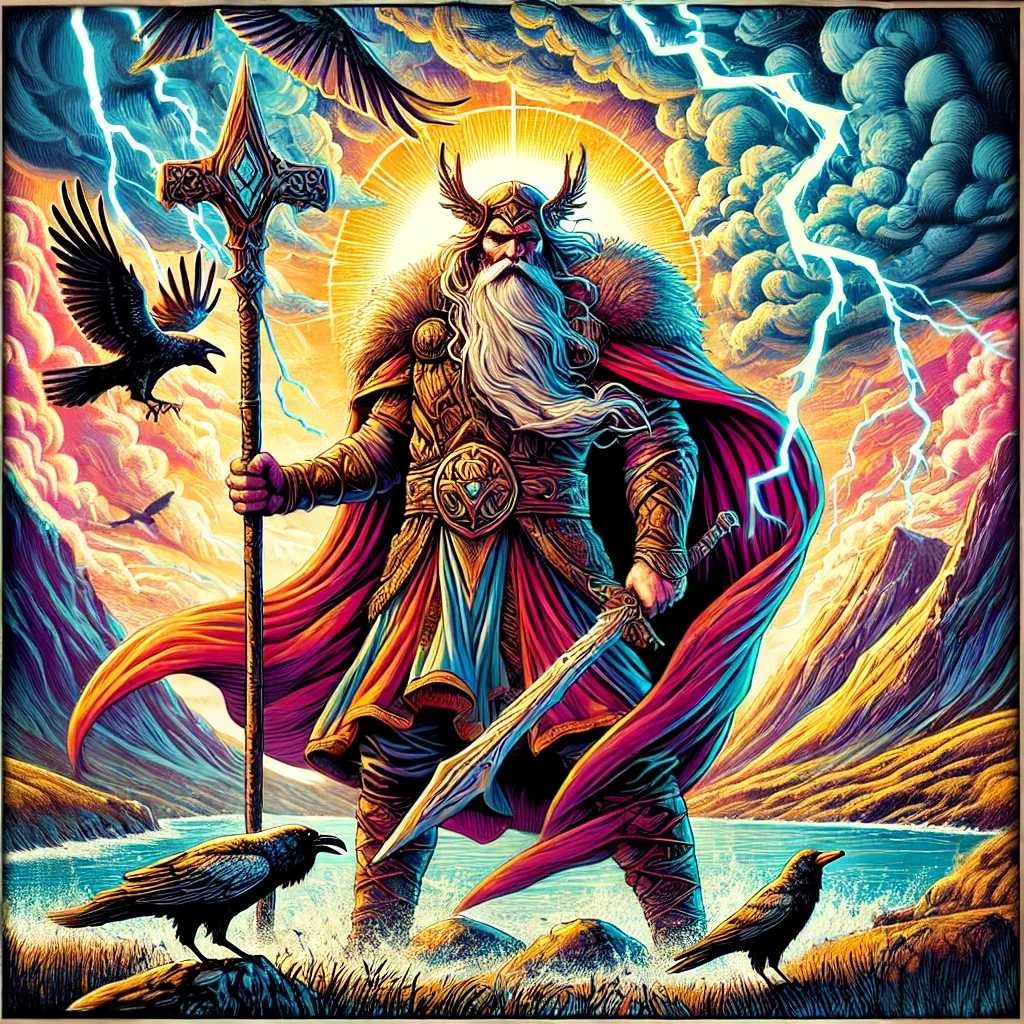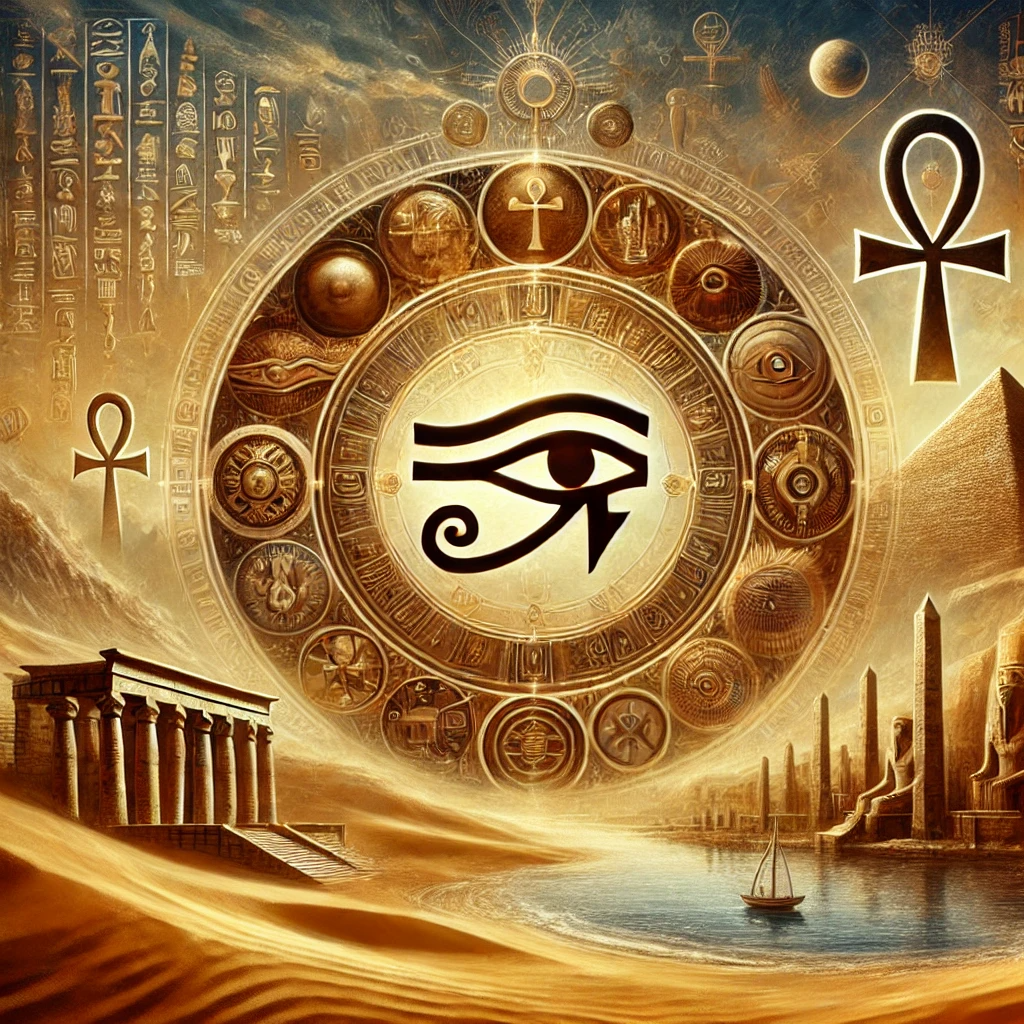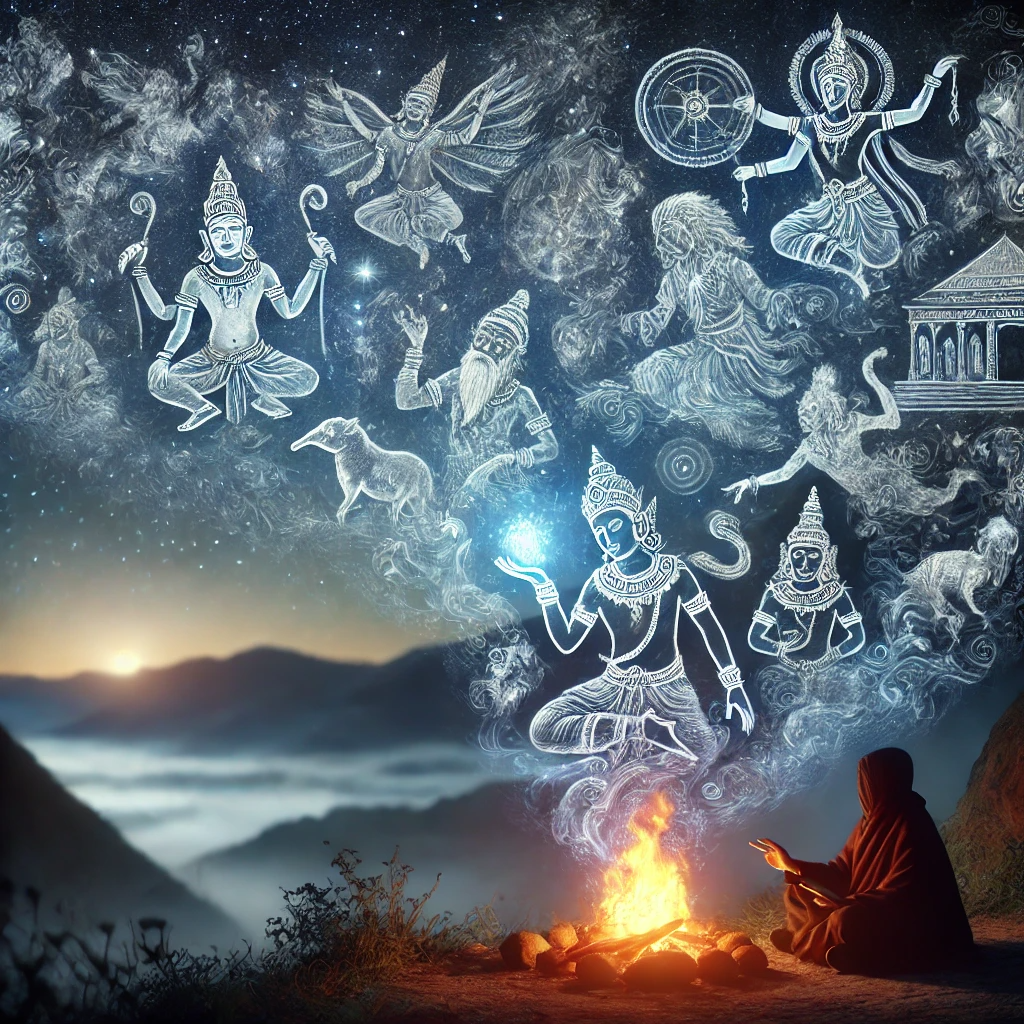Introduction: The Enduring Power of Mythology in Modern Culture
The importance of mythology in culture is undeniable, as these ancient stories have shaped civilizations, beliefs, and values throughout history. From the myths of the Greek gods to Norse legends and Egyptian deities, mythology has played a vital role in explaining the world, guiding moral conduct, and fostering cultural identity.. But why do these stories—often fantastical, filled with gods, monsters, and heroes—still resonate so deeply with us today?
In an age dominated by technology and scientific advancements, one might think that ancient myths would lose their relevance. Yet, mythology continues to influence our literature, art, and even the ways we approach contemporary challenges. In fact, the timeless themes found in mythology—such as the struggle between light and darkness, the quest for identity, and the search for meaning—are just as current (or “attuale”) as ever.
This article will explore the profound role mythology has played in shaping cultures throughout history and explain why studying and reading these ancient tales is not only relevant but essential for understanding both our past and present. We’ll dive into how these timeless stories provide a lens through which we can better comprehend human nature and the modern world around us.
The Role of Mythology in Shaping Culture

Mythology has long been at the heart of human civilization, serving as a cultural compass and providing explanations for the mysteries of life. Each society’s mythology reflects its unique values, beliefs, and historical experiences, shaping the moral, social, and spiritual framework of the culture. Through myths, ancient peoples explained the creation of the world, the workings of natural phenomena, and the nature of gods and humans.
Greek Mythology: The Foundation of Western Thought
Greek mythology is perhaps the most well-known and influential, offering foundational stories that have shaped Western philosophy, literature, and art. The myths of the Olympian gods—Zeus, Athena, and Apollo—illustrate the ancient Greeks’ beliefs about power, justice, and human frailty. The myth of Prometheus, for instance, who stole fire from the gods to give it to humanity, symbolizes the human quest for knowledge and defiance of divine authority. This myth reflects the Greek belief in the tension between human ambition and divine control, an idea that has influenced Western thought for millennia.
Greek mythology didn’t just shape cultural and intellectual traditions—it was also deeply integrated into everyday life. Festivals, rituals, and temples were built to honor the gods, reinforcing social values and collective identity. Even today, references to Greek mythology can be found in modern language, art, and psychology (think of the Oedipus complex or the term “Achilles’ heel”).
If you’re interested in diving deeper into these captivating tales and exploring their impact on modern society, check out our comprehensive guide: Greek Mythology for Beginners: Enchanting and Timeless Tales of Gods, Heroes, and Monsters. Unveil the Secrets of Ancient Legends and Explore the Stories that Defined History.
This resource offers a detailed look at the myths that continue to inspire literature, art, and philosophy today.
For more details on the boo, you can also visit our article on Bamboo Circle, which highlights the key themes and insights covered in the book.”
Norse Mythology: The Resilience of the Warrior Spirit
Norse mythology, rooted in the ancient Scandinavian cultures, is characterized by its rugged depictions of fate, honor, and the relentless power of nature. Stories of gods like Odin, the one-eyed all-father, and Thor, the hammer-wielding protector of humanity, reveal the Norse focus on courage and survival in the face of inevitable doom. The myth of Ragnarok, the prophesied end of the world, reflects a cultural understanding that life is a constant battle against fate, but one that should be fought with honor and determination.
The Valkyries and their role in choosing who would die in battle and ascend to Valhalla, the hall of the slain, reinforced the Norse warrior culture’s ideals of bravery and sacrifice. Even today, these myths continue to inspire popular culture, from comic book heroes to epic fantasy novels, celebrating the enduring spirit of resilience and the struggle against overwhelming odds.
Celtic Mythology: The Mystical and the Natural World
Celtic mythology, rich with symbolism and mysticism, offers a glimpse into a culture deeply connected to the natural world and the spiritual realm. The Tuatha Dé Danann, a race of supernatural beings in Celtic lore, and gods like Lugh and Brigid represented both the creative and destructive forces of nature. These myths often focus on cycles of life, death, and rebirth, reflecting the Celts’ view of time as circular, in harmony with the rhythms of nature.
One of the most famous Celtic myths, the story of Cú Chulainn, tells of a young warrior who gains superhuman strength in defense of his land. His tragic fate, much like that of heroes in other mythologies, highlights themes of honor, loyalty, and sacrifice—central tenets of Celtic culture. These themes resonate in the folklore and storytelling traditions that continue to shape Irish and Scottish culture today.
Egyptian Mythology: Life, Death, and the Afterlife
In ancient Egypt, mythology was intricately tied to the beliefs surrounding life, death, and the afterlife. The myth of Osiris, the god of the dead and the underworld, represents the Egyptian focus on resurrection and eternal life. According to the myth, Osiris was murdered by his brother Set, only to be resurrected by his wife Isis. This cycle of death and rebirth became the foundation of Egyptian burial practices and their concept of the afterlife.
The Egyptian myth of Ra, the sun god, symbolized the journey of the sun across the sky, from dawn to dusk, and its nightly descent into the underworld. This myth was deeply embedded in the Egyptians’ understanding of the cosmos and their place within it, leading to the construction of monumental temples and tombs, such as the pyramids, that aligned with their cosmological beliefs. Egyptian mythology continues to captivate modern imaginations, influencing everything from literature to films, with its themes of eternal life, justice, and divine power.
Mythology’s Influence on Modern Culture

Mythology’s impact isn’t limited to the ancient world. In fact, it continues to shape our modern culture in ways that are both subtle and profound. From literature and art to everyday life and popular media, mythological themes, archetypes, and symbols still resonate deeply, reminding us of our collective past while helping us make sense of the present.
In Literature and Art: Myths as Timeless Storytelling
Modern literature and art are filled with mythological references and themes, serving as a bridge between ancient wisdom and contemporary concerns. Writers like James Joyce and J.R.R. Tolkien infused their works with mythological structures and archetypes. Joyce’s Ulysses reinterprets Homer’s Odyssey, using the hero’s journey as a framework to explore modern existential dilemmas. Similarly, Tolkien’s Lord of the Rings draws heavily from Norse and Celtic mythology, with characters and themes echoing ancient tales of heroes, gods, and moral struggles.
In visual art, mythological subjects have inspired countless masterpieces. Artists like Salvador Dalí and Pablo Picasso revisited Greek myths, interpreting them through a modern lens to explore the human psyche, creativity, and existentialism. Michelangelo‘s David and Bernini‘s Apollo and Daphne showcase how mythological figures have been immortalized in sculpture, capturing the timeless essence of human struggle and transformation.
In Everyday Life: Mythological Symbols and Rituals
Mythology subtly permeates everyday life, even in the modern world. Many of the symbols and rituals we encounter daily are derived from ancient myths. For instance, the Scales of Justice used in courtrooms worldwide trace back to the Greek goddess Themis, who symbolized fairness and balance. Cupid, the Roman god of love, is still invoked every Valentine’s Day, while Mercury’s winged sandals have become a universal symbol for speed, seen in logos from sports brands to courier services.
These mythological references have become part of our cultural lexicon, helping to define values such as justice, love, and speed in visual and symbolic ways. Even the names of the planets in our solar system—Mars, Venus, Jupiter—are borrowed from Roman mythology, reflecting the lasting influence of these stories on our worldview.
In Popular Culture: The Modern Renaissance of Mythology
Mythology has experienced a resurgence in modern popular culture, particularly through movies, television, and video games. Greek and Norse myths have been adapted into blockbuster films like Clash of the Titans, Troy, and Marvel’s Thor franchise, making ancient gods and heroes accessible to a new generation. These stories resonate because they tap into universal themes—heroism, sacrifice, destiny—that remain deeply relevant in contemporary society.
In video games, mythology often serves as the foundation for world-building. Games like God of War, which draws on Greek and Norse mythology, or Assassin’s Creed: Valhalla, which immerses players in Viking lore, allow players to engage with these ancient worlds in interactive and dynamic ways. These modern adaptations not only entertain but also revive interest in the original myths, connecting younger audiences with their cultural roots.
In Psychological and Philosophical Thought
Mythology also continues to influence modern psychological and philosophical thought. The work of psychologist Carl Jung and mythologist Joseph Campbell emphasized the importance of myths in understanding the human psyche. Jung’s theory of archetypes—universal symbols and themes like the Hero, the Mother, and the Shadow—draws directly from mythology and helps explain recurring patterns in dreams, stories, and human behavior.
Campbell’s concept of the “Hero’s Journey”—the common template of a hero who goes on an adventure, faces a crisis, and returns transformed—has become a foundational narrative structure in both storytelling and personal development. This structure, seen in mythological figures like Odysseus and Thor, can also be found in modern narratives like Star Wars and The Matrix, reflecting our continued fascination with the mythological journey of growth, struggle, and transformation.
The Relevance of Studying Mythology Today

Despite being ancient, mythology holds a surprisingly important place in contemporary culture and education. The study of these timeless stories not only enriches our understanding of history but also provides valuable insights into human nature, societal norms, and universal truths. Here’s why mythology continues to be highly relevant today.
Understanding Human Nature and Universal Themes
At its core, mythology deals with universal themes like life, death, love, and conflict—experiences that are just as relevant to modern audiences as they were to ancient civilizations. Myths provide timeless reflections on human nature, exploring the same emotions, desires, and fears that we encounter today. For instance, the Greek myth of Narcissus highlights the dangers of vanity and self-obsession, a theme that feels particularly relevant in the age of social media.
By studying mythology, we gain deeper insights into the complexities of human behavior. Myths like Icarus’ fall after flying too close to the sun remind us of the dangers of hubris and overreaching ambition—lessons that still resonate in modern narratives about personal and societal excess.
A Tool for Cultural Literacy and Global Understanding
Mythology is a gateway to understanding different cultures. Every culture has its own myths, which offer a unique window into its values, beliefs, and way of life. For example, by studying Norse mythology, we gain insight into the Viking view of fate, honor, and mortality. Meanwhile, Celtic mythology reveals the importance of nature and the spiritual world in shaping Irish and Scottish culture.
Learning about the myths of different cultures enhances cultural literacy, fostering a better understanding of global traditions and worldviews. In an increasingly interconnected world, this cultural knowledge is invaluable. Whether it’s the gods of Mount Olympus or the deities of the Egyptian pantheon, mythology enriches our comprehension of how different societies interpret the world around them.
Mythology as a Framework for Addressing Modern Issues
Many of the themes present in ancient mythology mirror modern challenges, making these stories surprisingly useful for addressing contemporary issues. Environmental concerns, for instance, are deeply connected to myths about nature and its forces. Myths like Gaia, the Greek personification of Earth, remind us of the importance of living in harmony with the environment, a message that resonates strongly in today’s conversations about climate change and environmental sustainability.
Mythology also offers tools for discussing complex moral and ethical questions. The Egyptian myth of Ma’at, which represents truth, justice, and cosmic balance, can be used to explore modern debates about justice and ethical leadership. Similarly, the stories of Odin’s wisdom quests in Norse mythology can be connected to the idea of lifelong learning and the pursuit of knowledge, which remain crucial values in our rapidly changing world.
The Psychological and Philosophical Benefits of Mythology
From a psychological standpoint, myths provide a framework for understanding our own personal journeys. Joseph Campbell’s Hero’s Journey, which is rooted in mythological storytelling, serves as a powerful tool for personal development. Many people see their own lives reflected in the challenges and transformations faced by mythological heroes, using these stories as metaphors for personal growth.
Studying mythology can also foster resilience by teaching us that struggle, loss, and adversity are natural parts of life’s journey. For example, the myth of Persephone, who is abducted into the underworld but eventually returns to the world above, reflects themes of renewal, transformation, and the cyclical nature of life. These lessons offer comfort and guidance during times of personal hardship or societal crisis.
Mythology in Modern Education
In educational settings, mythology serves as a versatile tool for teaching literature, history, and even ethics. Many schools and universities include mythological studies in their curriculum because these stories offer rich opportunities for critical thinking and creative exploration. Students can analyze the moral dilemmas of Achilles or the philosophical questions posed by the Egyptian Book of the Dead, engaging with complex issues that encourage deep reflection.
Beyond formal education, mythology also plays a key role in lifelong learning. As people continue to seek meaning and understanding in an increasingly fast-paced world, returning to mythological stories offers timeless wisdom and guidance.
Conclusion: The Timeless Power of Mythology

Mythology is far more than a collection of ancient stories; it is a living, breathing part of our cultural and personal identities. These tales, filled with gods, heroes, and profound moral lessons, have shaped human history and continue to influence the modern world. From the stories of Zeus and Odin to the wisdom of Celtic druids and the mysteries of Egyptian gods, mythology provides a deep well of insight into human nature, our societies, and our shared values.
In studying mythology, we are reminded of the power of storytelling to communicate universal truths about love, honor, sacrifice, and the quest for meaning. These stories help us navigate the complexities of modern life, from the moral dilemmas we face to our evolving understanding of cultural identity.
By looking to the past, we gain a deeper appreciation for the enduring relevance of myths, not just as relics of history but as tools for understanding our world and ourselves. As we engage with these timeless tales, we open the door to greater cultural literacy, psychological insight, and personal growth, ensuring that mythology continues to enrich our lives for generations to come.




Fantastic web site. Plenty of useful info here. I’m sending
it to several friends ans additionally sharing in delicious.
And certainly, thanks for your sweat!